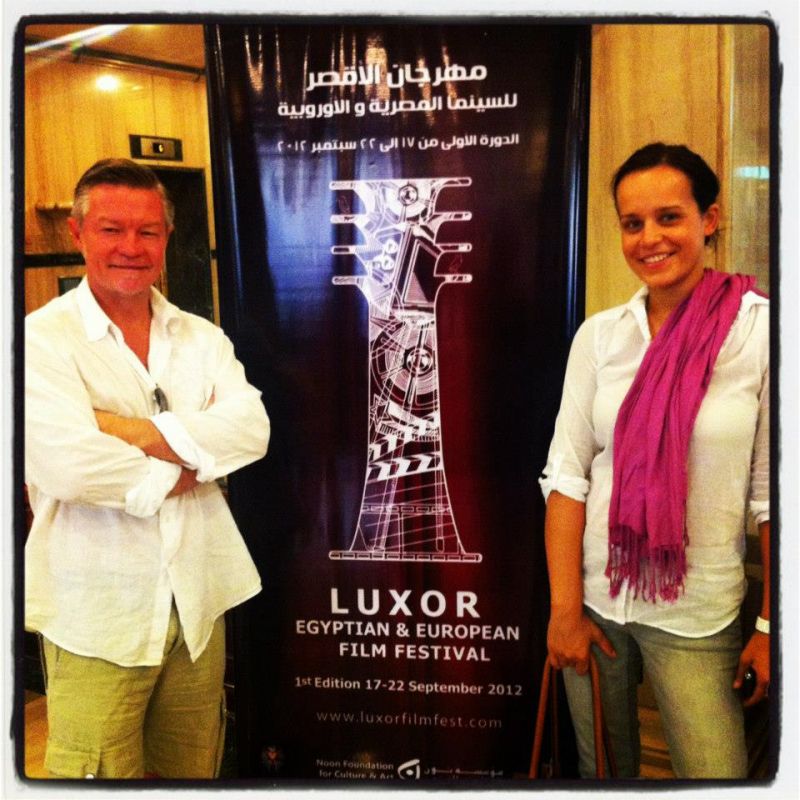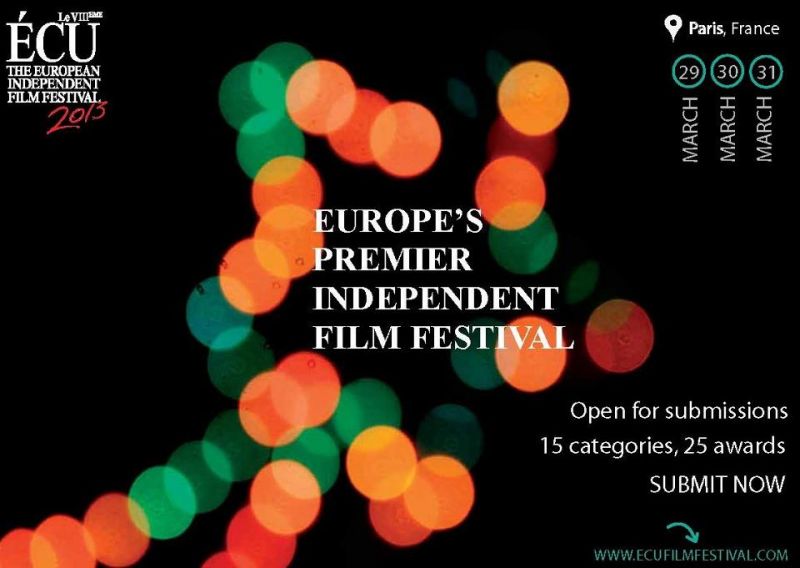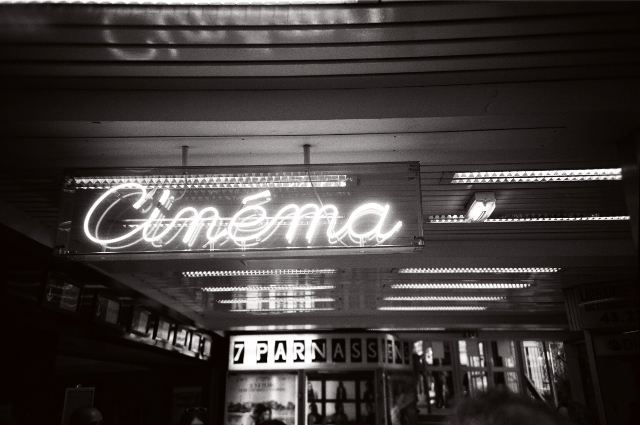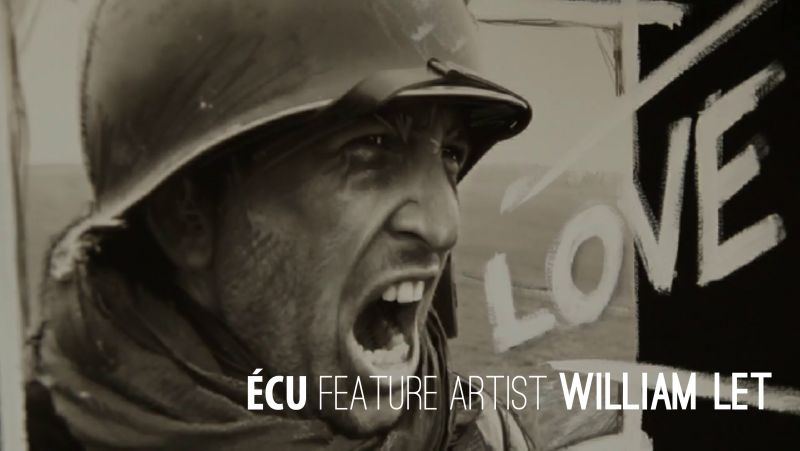|
|
||
|
Pro Tools
FILMFESTIVALS | 24/7 world wide coverageWelcome ! Enjoy the best of both worlds: Film & Festival News, exploring the best of the film festivals community. Launched in 1995, relentlessly connecting films to festivals, documenting and promoting festivals worldwide. Sorry for the interruption, we needed to correct and upgrade some modules. Working on a new website. For collaboration, editorial contributions, or publicity, please send us an email here. You need for put your full detail information if you want to be considered seriously. Thanks for understanding. User login |
ÉCU-The European Independent Film FestivalÉCU - The European Independent Film Festival is dedicated to the discovery and advancement of the very best independent films from around the world. We are a festival who believes in our independent filmmakers and their artistic talents. ÉCU proudly provides a unique platform that brings together diverse audiences who are hungry for something other than major studio productions and original and innovative filmmakers.
The 16th edition of ÉCU - The European Independent Film Festival will take place on 9th-11th April 2021. Now open for submissions!
For more details regarding the festival, please visit our website at www.ecufilmfestival.com.
 Interview with with ÉCU Official Selection film “Minute 200″ director, Frank BenitezFrank Benitez is young and talented filmmaker, who made it to ÉCU 2012 Official Selection with his film “Minute 200″. This interview was finished couple of weeks before the festival. By Alexander Acosta Osorio Q: Where does the inspiration for your short come from? A: Usually my inspiration comes from places I visit or just an image that sticks in my memory. In this case it was that of a house in my hometown, a dilapidated house that had a sign on the facade which offered minutes for calls to cell phones, then I was intrigued because it seemed that the house or its inhabitants were selling time I had to live. This resulted in the history of Minute 200. Q: In the process of making a short film, what are the most important things you should consider? A: The idea and the desire to want to, but above all a determination that borders on stubbornness. Q: For you, what makes a film successful or a total failure? A: It’s hard, it is about many things and there is no guaranteed formula for success. But that has to do with identifying with the public, that is something that touches their feelings of sadness to already, nostalgia, joy … To produce a reaction in the viewer. The story that does not make contact to no safe level will not succeed. The universal themes like love have great potential, yet we think the author should do what I want to express at that time. Q: What was the most challenging aspect the process of making your film? A: Two basically, first things was to get the ideal location to shoot and fortunately it had once brought the latter as the protagonists of the story Vivian there, and was a wonderful thing because although they were people who never in his life had been front of a camera, surrendered with all his humility and nobility to the project. Q: The good, the bad and the ugly of making your own films? Is there something you’ve done differently? A: The good: people, always or almost always. You work with, whom you know, those who help you in the process. It is a collaboration and that is very good. The bad: the search for budget. It is not easy to do but not impossible. The ugly: Well, in this case is the lack of dissemination, especially the shorts in Colombia go unnoticed, the channels are not interested and no pryectarlos rooms, only a few festivals. Q: What is your favorite format to shoot a film? Is the format part of the story? What do you think? A: The digital. Gives me more freedom and peace of mind when shooting. I think shooting in 35mm or 16 is becoming something more romantic than anything else. Q: Do you believe in film festivals? What is your experience in the festival circuit? A: Totally. This is where the film truly lives. Indeed I have little experience so far is my second short film and am very happy with the international acceptance to date is selected by 12 festivals. In Colombia has not yet been released. Q: Secrets of the trade you would like to share? Be generous. A: What I have said, to the stubborn perseverance. It’s no secret by the way but many people stay on the road. Q: How did your interest for film begin? And today where you see it going? A: Since I can remember I’ve always liked the movies, had a list of all the movies I had seen good and bad. Just a taste for it if it got later and continued, now more than ever. Q: Future projects? What’s next? A: The long. Is under development at the stage of achieving lasting resources. Q: What does this recognition mean for you and your team? And how do you feel about being selected to ÉCU as well? A: There will always be good to recognize your work, appreciate it, especially when you do what you love. Guadalajara’s award is an achievement both personnel and equipment. A confirmation that things are done well. ÉCU selection is also part of that recognition, which began with our world premiere in Bulgaria!, And that makes it even more special. For us it is important not only to display this work in latinamerica but also in the rest of the world and that ÉCU is primarily a European film festival makes us feel proud. If I speak in prural is precisely because it has been a work in which many participated, and the merit is also collective. Watch the trailer of the film HERE !! 10.04.2012 | ÉCU-The European Independent Film Festival's blog Cat. : Alexander Acosta Osorio Alexander Acosta Osorio Author Bulgaria cell phones Che cinema Colombia Director ecu ecufilmfestival Entertainment Entertainment european Films Frank Benitez Frank Benitez Guadalajara independent indie Memory minute 200 Official official selection paris Person Attributes Person Career Q Selection Technology Technology FESTIVALS
|
LinksThe Bulletin Board > The Bulletin Board Blog Following News Interview with EFM (Berlin) Director
Interview with IFTA Chairman (AFM)
Interview with Cannes Marche du Film Director
Filmfestivals.com dailies live coverage from > Live from India
Useful links for the indies: > Big files transfer
+ SUBSCRIBE to the weekly Newsletter DealsUser imagesAbout ÉCU-The European Independent Film Festival Hillier Scott Hillier Scott (ECU)
Scott Hillier, Founder and President of ÉCU - The European Independent Film Festival
Scott Hillier is a director, cinematographer, and screenwriter, based in Paris, France. In the last 20 years, Hillier has gained international recognition from his strong and incredible cinematography, editing, writing, producing and directing portfolio in both the television and film industries.
Scott began his career in the television industry in Australia. In 1988, he moved to London getting a job with the BBC who then set him to Baghdad. This opportunity led him to 10 years of traveling around world for the BBC, mainly in war zones like Somalia, Bosnia, Tchetcheynia, Kashmir, and Lebanon. After a near fatal encounter with a Russian bomber in Tchechnyia, Hillier gave up his war coverage and began in a new direction.
He moved to New York City in 1998. He directed and photographed eight one-hour documentaries for National Geographic and The Discovery Channel. Based on his war knowledge and experience, Hillier wrote and directed a short film titled, “Behind the Eyes of War!" The film was awarded “Best Short Dramatic Film” at the New York Independent Film and TV Festival in 1999. From that he served as Supervising Producer and Director for the critically acclaimed CBS 42 part reality series, "The Bravest” in 2002 and wrote and directed a stage play called, "Deadman’s Mai l," which ran at Le Théâtre du Moulin de la Galette in Paris during the summer of 2004. He then became the Director of Photography on a documentary titled, “Twin Towers." This was yet another life changing experience for Hillier. The riveting documentary won an Academy Award for "Best Documentary Short Subject" in 2003. In 2004, Hillier changed continents again, spending three months in Ethiopia. He produced “Worlds Apart,” a pilot for ABC America / True Entertainment / Endemol. As you can see, Hillier was and is always in constant movement and enjoys working in a number of diverse creative areas including documentaries, music videos, commercials, feature and short films.
Scott studied film at New York University and The London Film and Television School. He also studied literary non-fiction writing at Columbia University. Hillier's regular clients include the BBC, Microsoft, ABC, PBS and National Geographic. Between filming assignments, he used to teach film, a Masters Degree course in Screenwriting at the Eicar International Film School in Paris, France and journalism at the Formation des Journalistes Français in Paris, France.
View my profile Send me a message The EditorUser contributionsUser links |



























